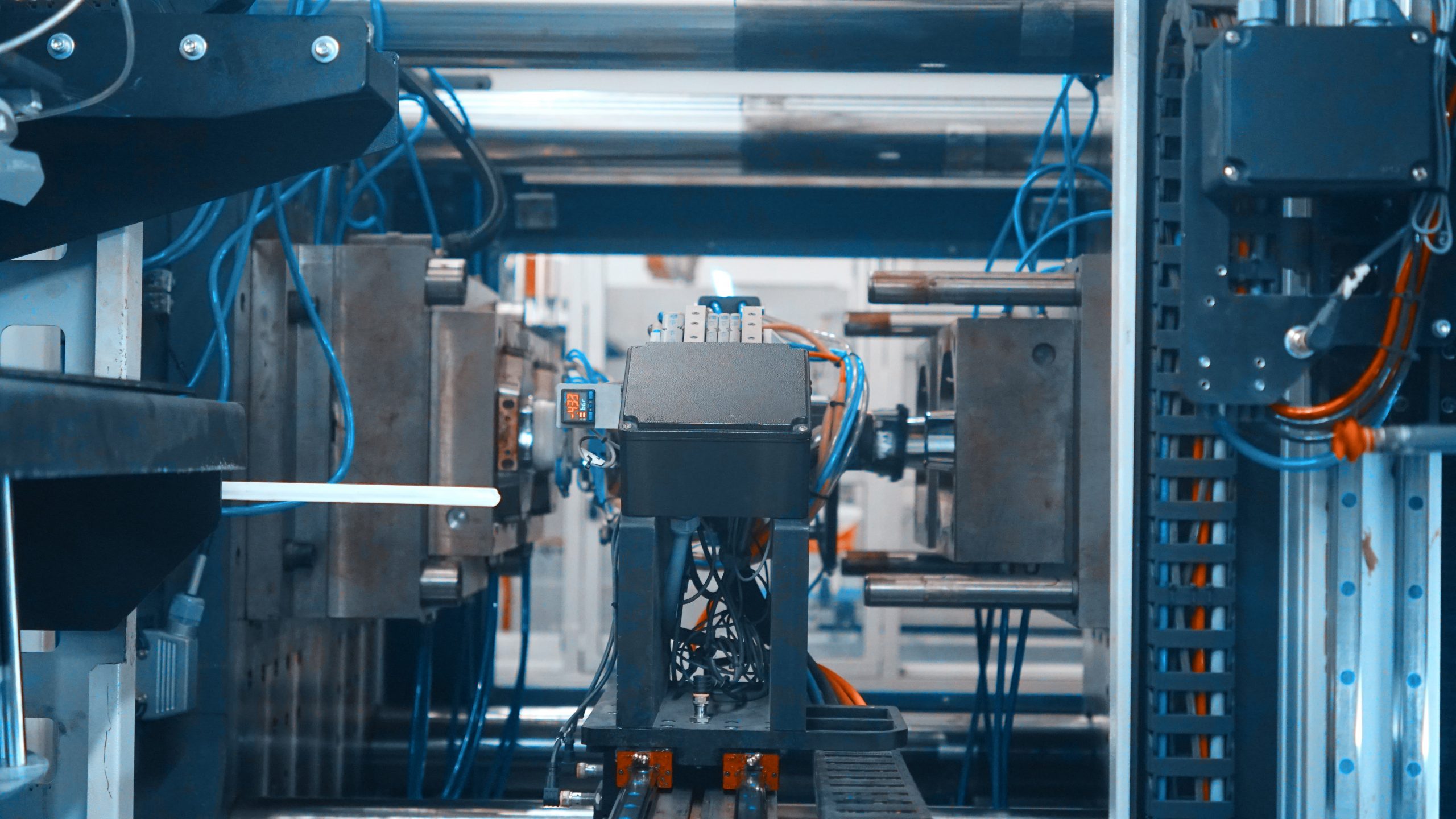
4 Stages of Injection Molding Process 🥇 Injection Molding Industries
Although manufacturing technology has been developing rapidly, injection molding is still widely used for fabricating plastic parts with complex geometries and precise dimensions. Since the occurrence of faults in injection molding is inevitable, process optimization is desirable. Artificial intelligence (AI) methods are being successfully used for optimization in different branches of science.

One Picture to Understand the Structure of an Injection Mold
Injection moulding is a manufacturing process that allows for parts to be produced in large volumes. It works by injecting molten materials into a mould (or 'mold' in the United States). It is typically used as a mass production process to manufacture thousands of identical items. Injection moulding materials include metals, glasses.

The Basic Permanent Mold Casting Process YouTube
In the simplest terms, it's a manufacturing process where molten plastic is injected into a mold, then cooled and ejected as a solid part. But let's break it down a bit more. First, the plastic material, in the form of granules or pellets, is fed into the injection molding machine through a hopper.
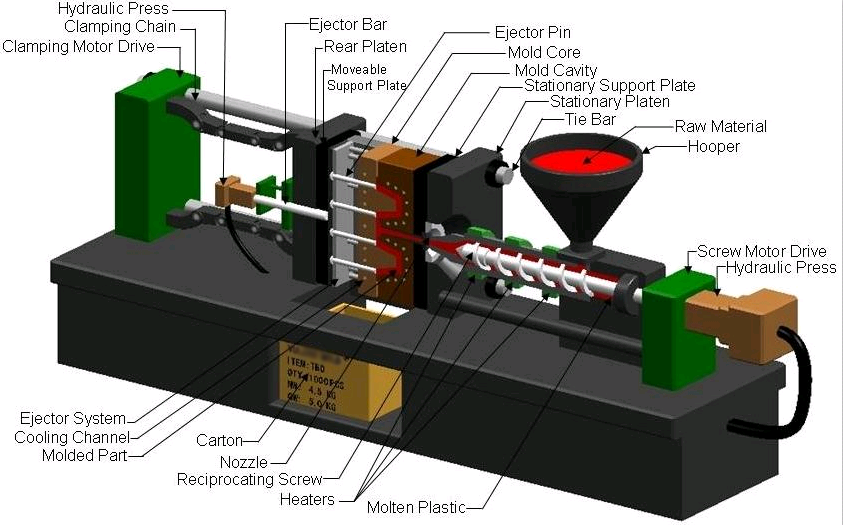
5 Processes of Making Injection Molds Techicy
Injection moulding (U.S. spelling: injection molding) is a manufacturing process for producing parts by injecting molten material into a mould, or mold.

How Mold Manufacturing Works?
Molding processes are the major periodic manufacturing operations in the polymer industry. An enormous amount of plastic, rubber, and thermoset parts, ranging from automobile bumpers to personal computers, refrigerator housings to bottles and tires, are produced by molding processes.

Schematic drawing of the mold for an injection molding process. The... Download Scientific Diagram
Chem-Trend products improve process efficiency during injection molding. Purging compounds and mold maintenance products to increase quality and productivity.
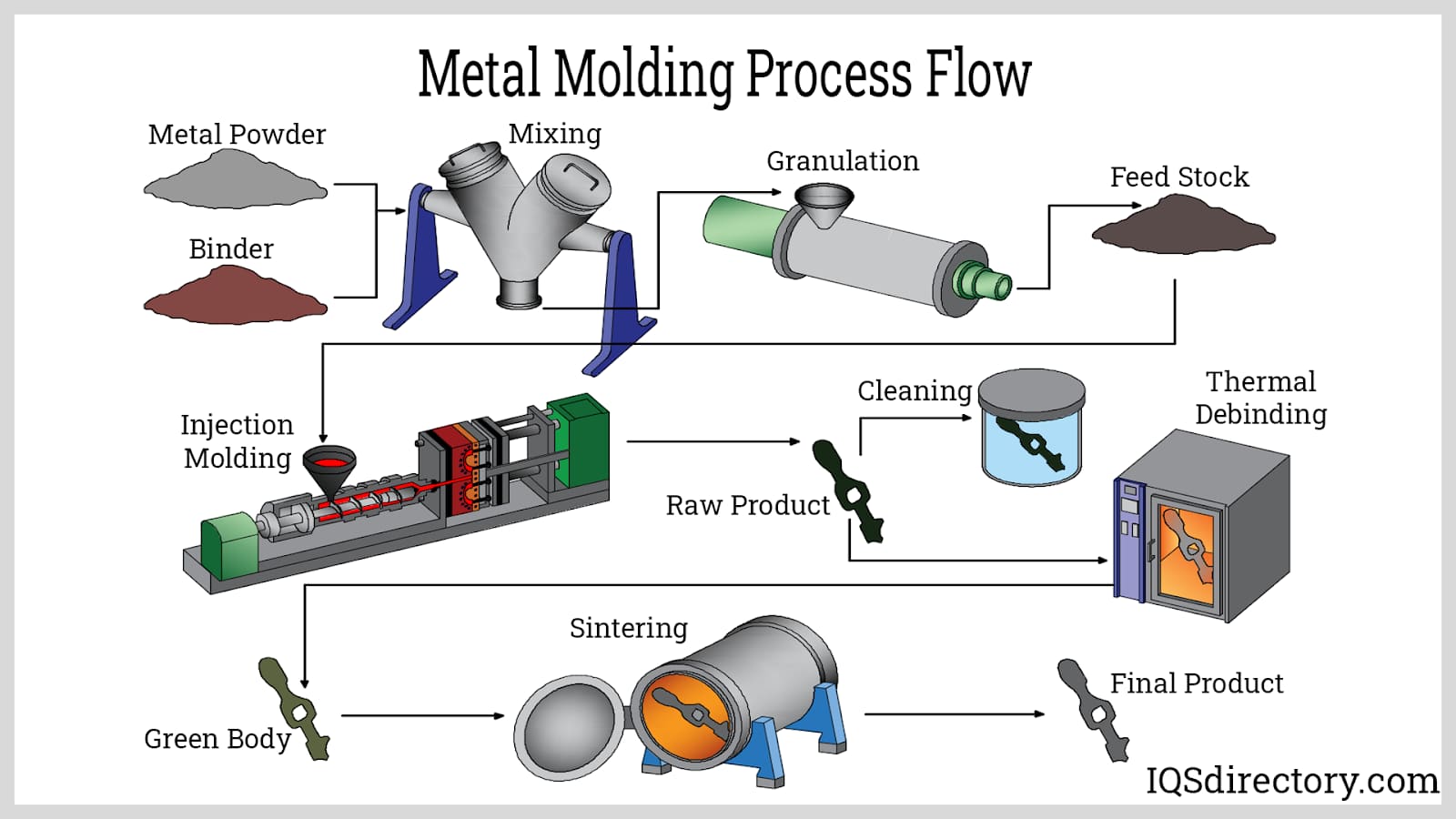
Metal Injection Molding Advantages, Disadvantages, Process Stages, and Molding Considerations
Several studies in the mold industry have been carried out to optimize the mold manufacturing process, it is worth mentioning the study developed by Treno, 2012 [2] on the application of Lean methodologies in the scope of maintenance of a metalworking company producing molds. This study includes an analysis of equipment downtimes and.
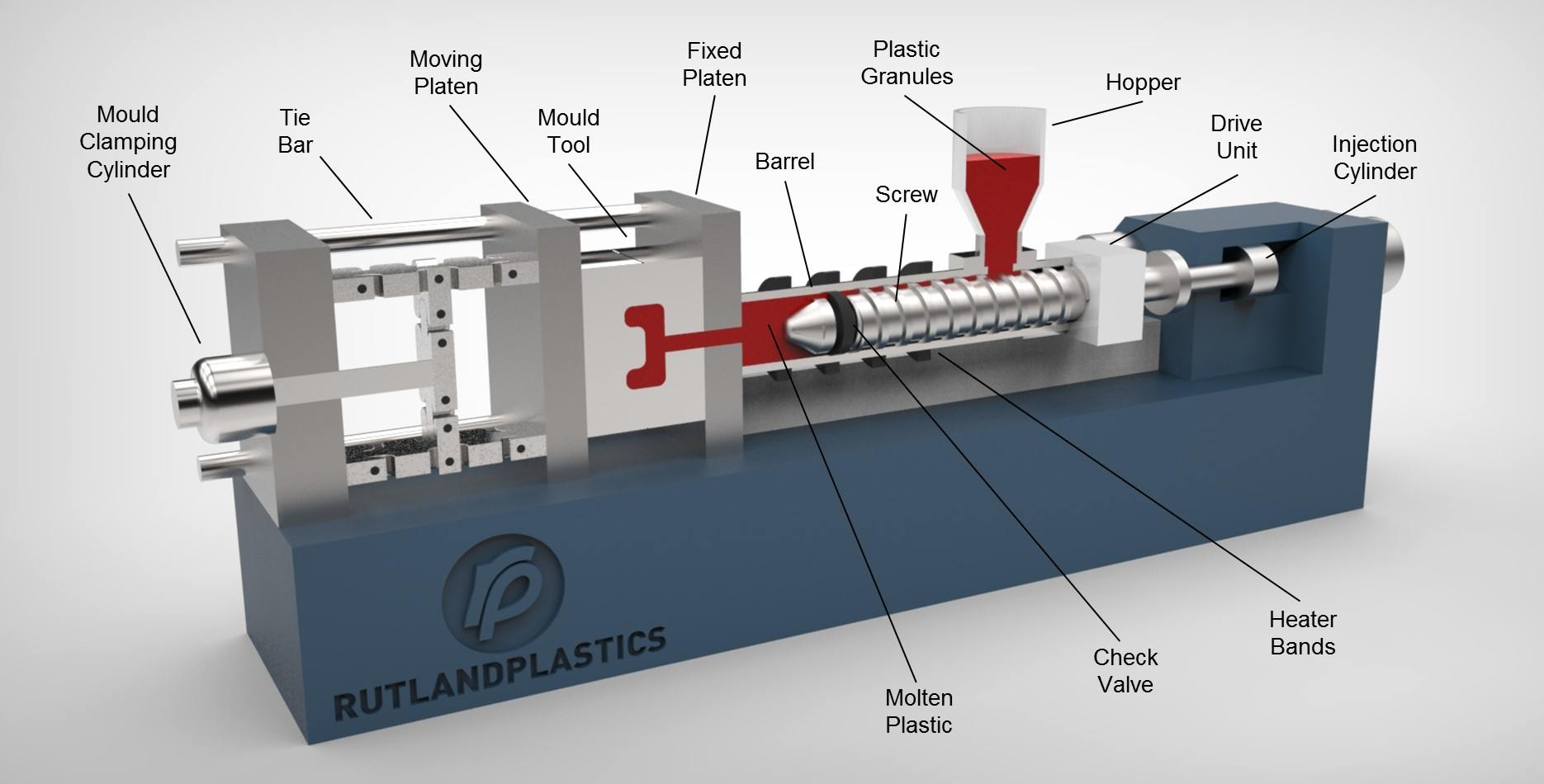
How does injection moulding work Rutland Plastics
Polymer injection-molding is a standard manufacturing process that is typically characterized by high production volumes [5]. Electricity is required during several steps of this process, from the movements of the machine that allow the closure of the mold, filling the cavity, holding and ejecting
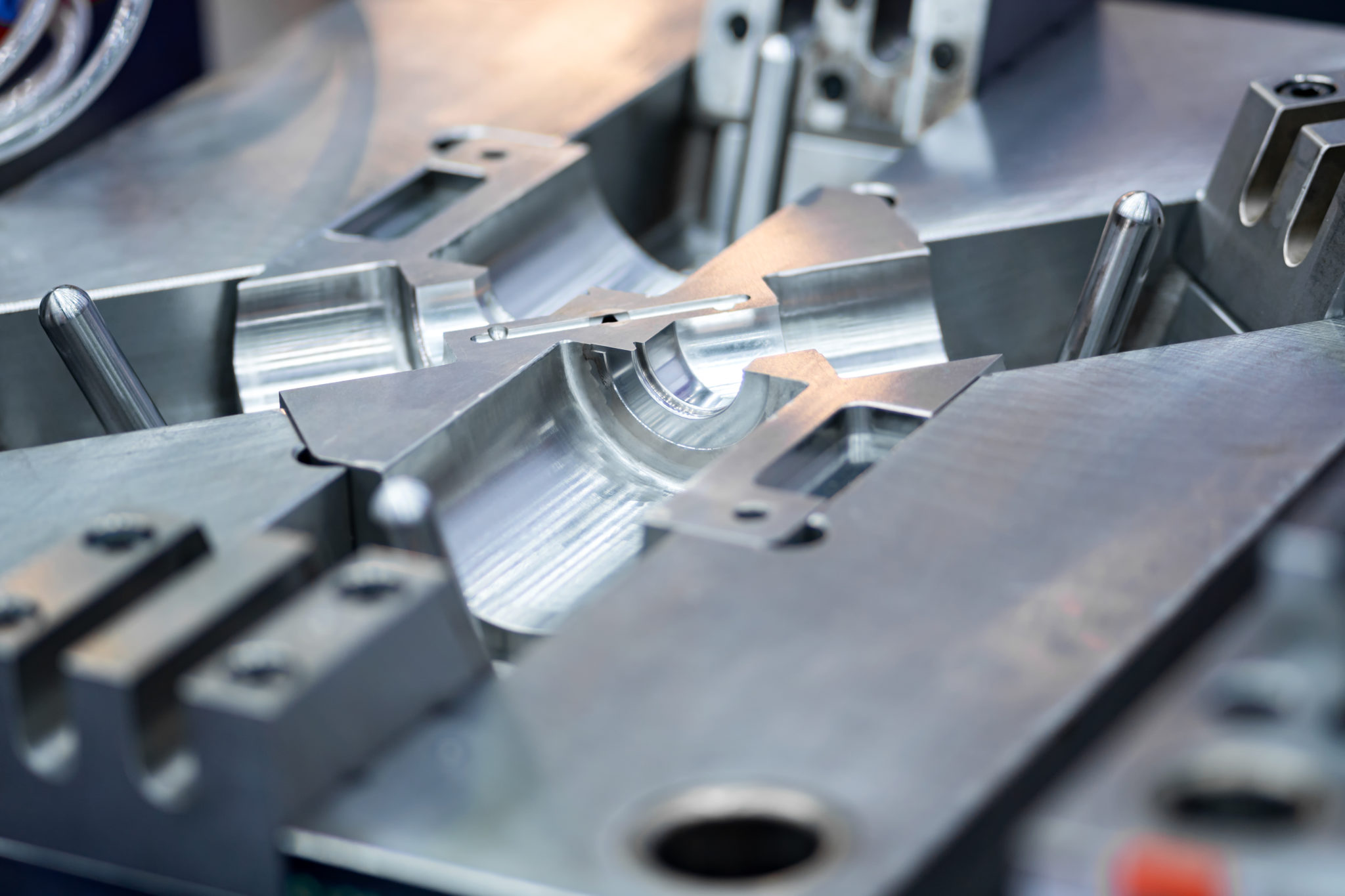
Molding Manufacturing Creating the World's Most Useful Products
Injection moulding is a manufacturing process that melts, injects and sets plastic into a metal mould. The plastics used by injection molding processes are relatively cheap and can be used to achieve a wide variety of properties, so injection molding is popular for creating many packaging and consumer products, like LEGO! Commercially.
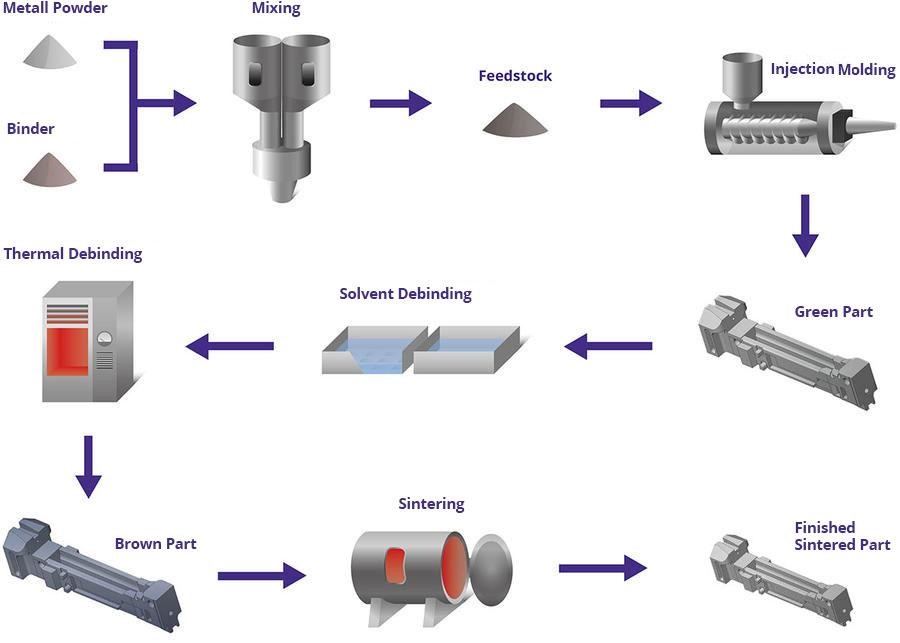
Metal Injection Molding MIM Process FineMIM
Injection molding is a manufacturing process used for the mass production of identical plastic parts. It's a method of plastic injection where molten plastic is inserted into a mold to produce a part in the shape of the mold cavity, creating a physical representation of modeled plastic parts. Plastic injection molding has been.
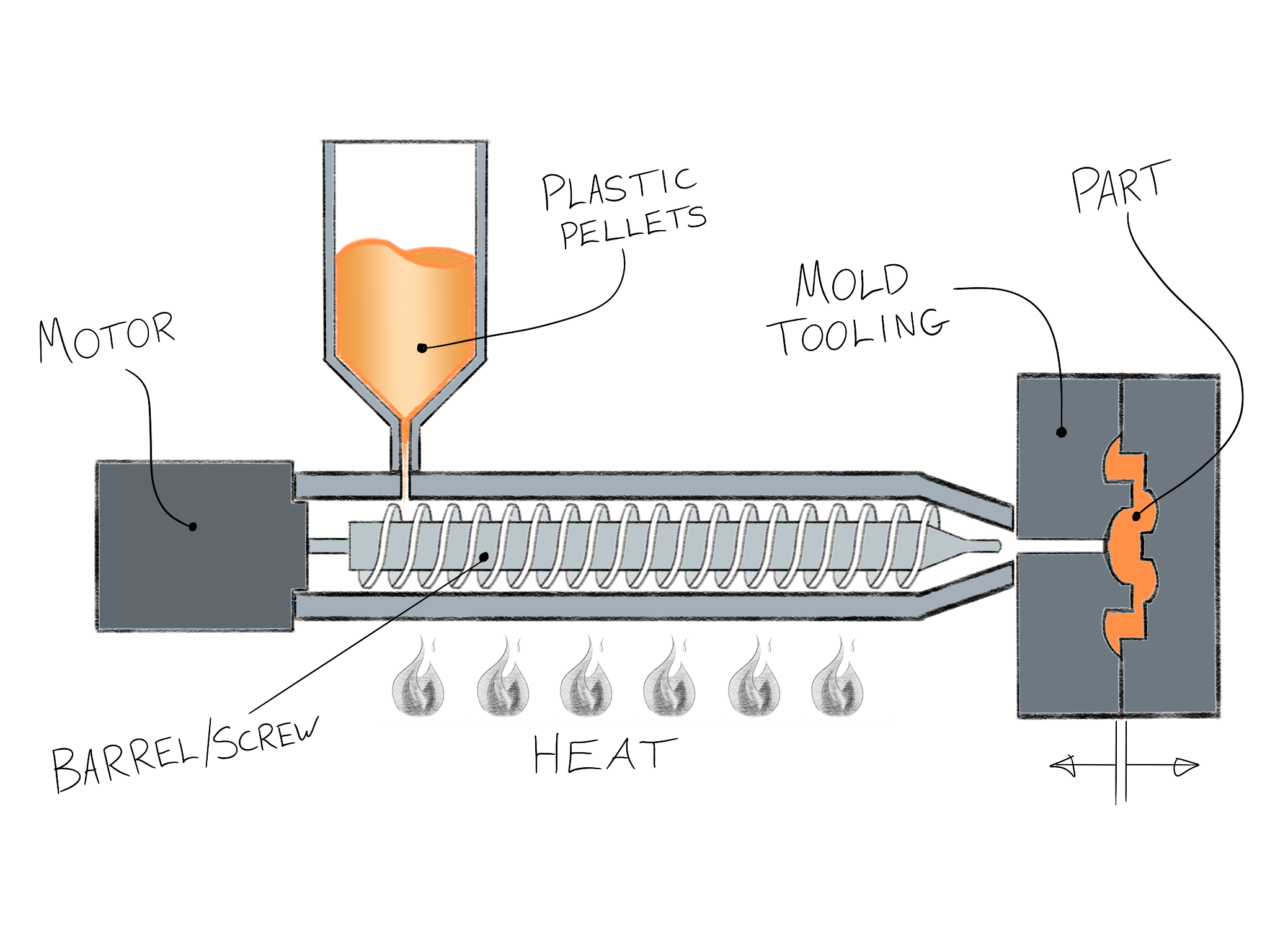
Plastic Injection Molding Process Guide 2019 Full Process Explained
The mold manufacturing process for injection molding is referred to as mold tooling. Many molding shops offer mold tooling and design as a service on top of full production injection molding. The majority of these molds are made of steel, but they can also be manufactured from aluminum.

The Mold and Die Manufacturing Process with Machining Center by Liquid Coolant Method. Stock
2. The Basics of Injection Molding 2.1 What is Injection Molding? Injection molding is a manufacturing process in which molten plastic material is injected into a mold cavity, where it cools and solidifies to form the desired shape of the final product.
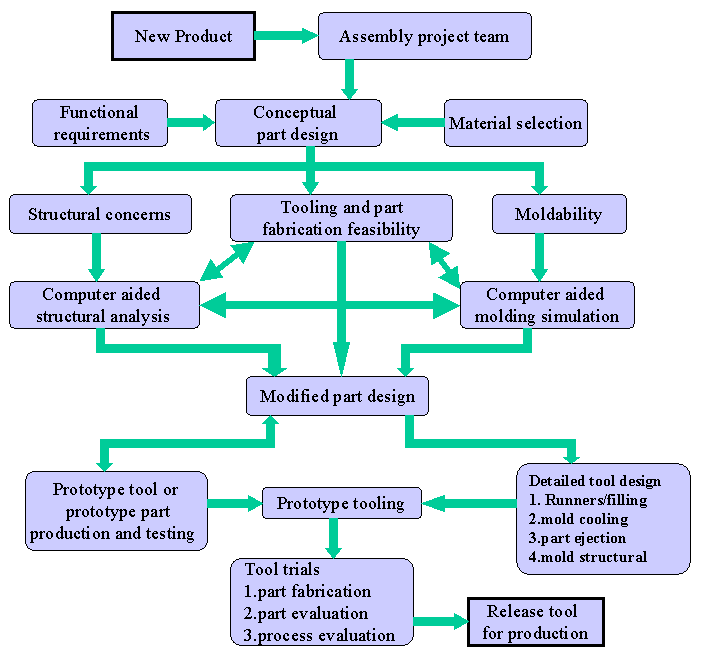
Plastic Injection Mold maker from China
As a typical example of molding technologies, the precision glass molding (PGM) process is first introduced and analyzed, as are the extreme requirements of the mold materials. Subsequently, the newest nonmechanical technologies, including etching, laser machining, and electrical discharge machining (EDM), are introduced and explained in detail.
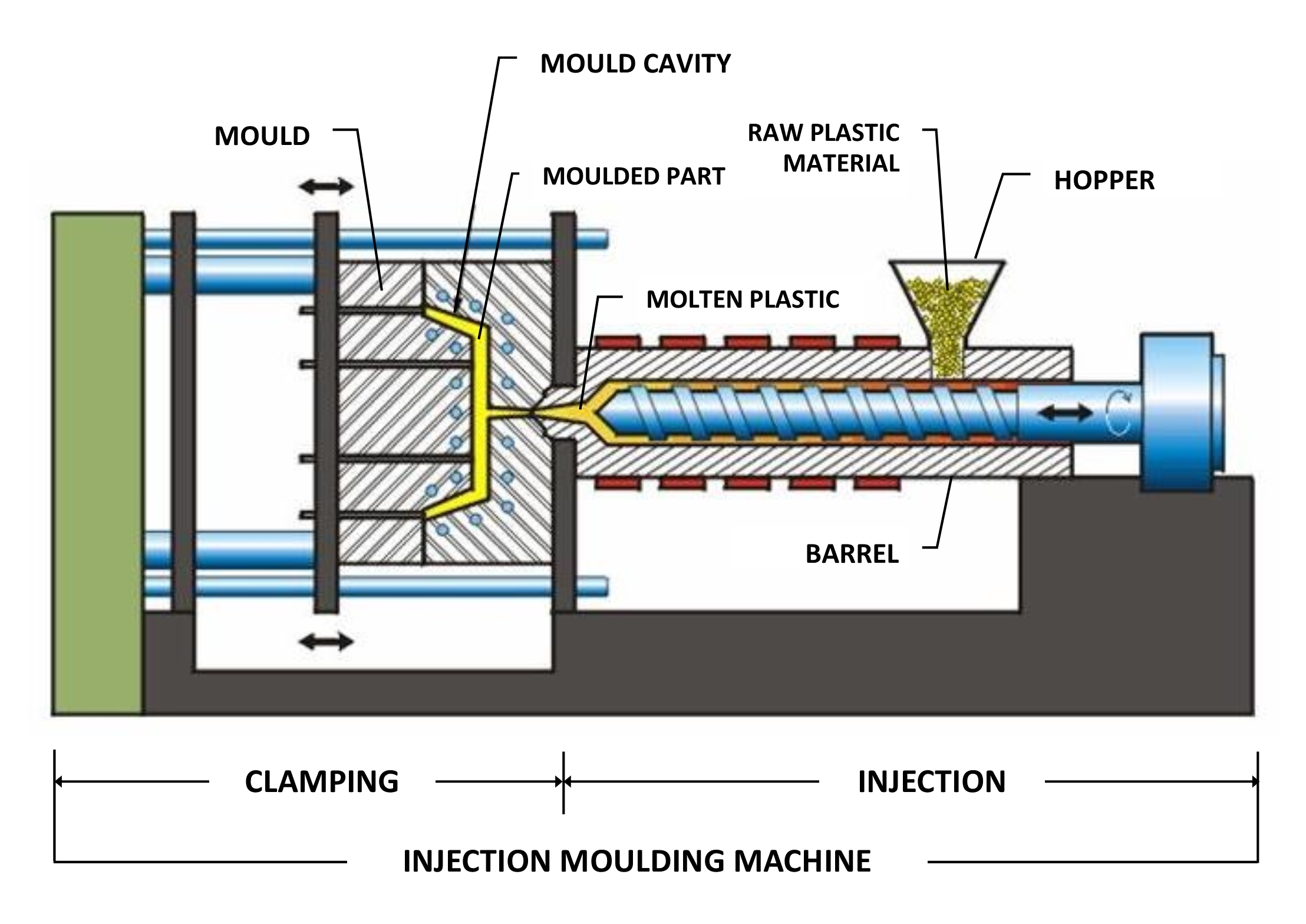
Robotics in Injection Moulding RNA Automation
Molding ( American English) or moulding ( British and Commonwealth English; see spelling differences) is the process of manufacturing by shaping liquid or pliable raw material using a rigid frame called a mold or matrix. [1] This itself may have been made using a pattern or model of the final object.
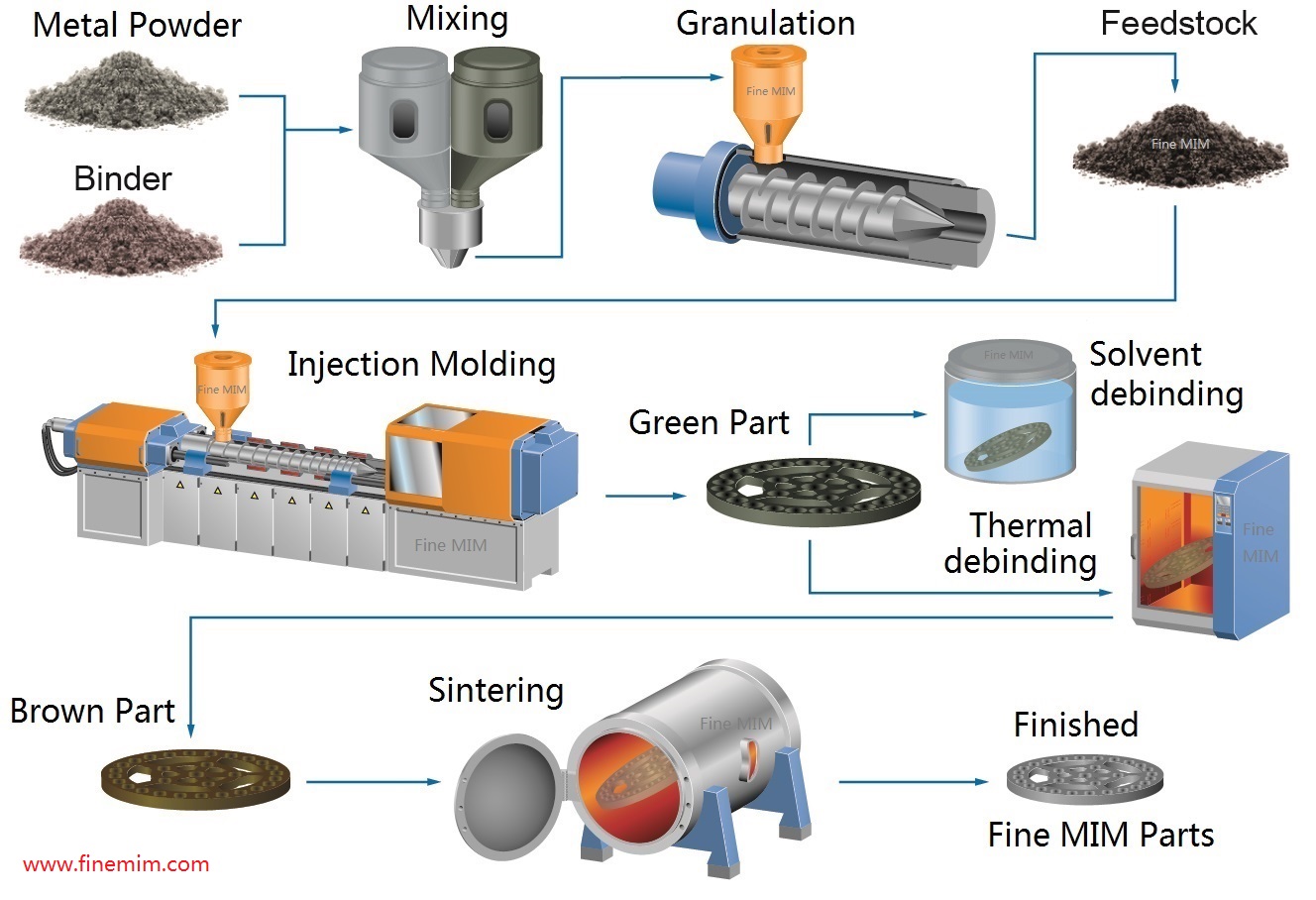
Metal Injection Molding MIM Supplier
Molding is the process of shaping a liquid or flexible raw material using a rigid frame called a mold. This process, which is very popular today in many industries, took off at the height of the Second World War when the need for mass-produced products increased.. However, computers have facilitated the entire design and manufacturing.
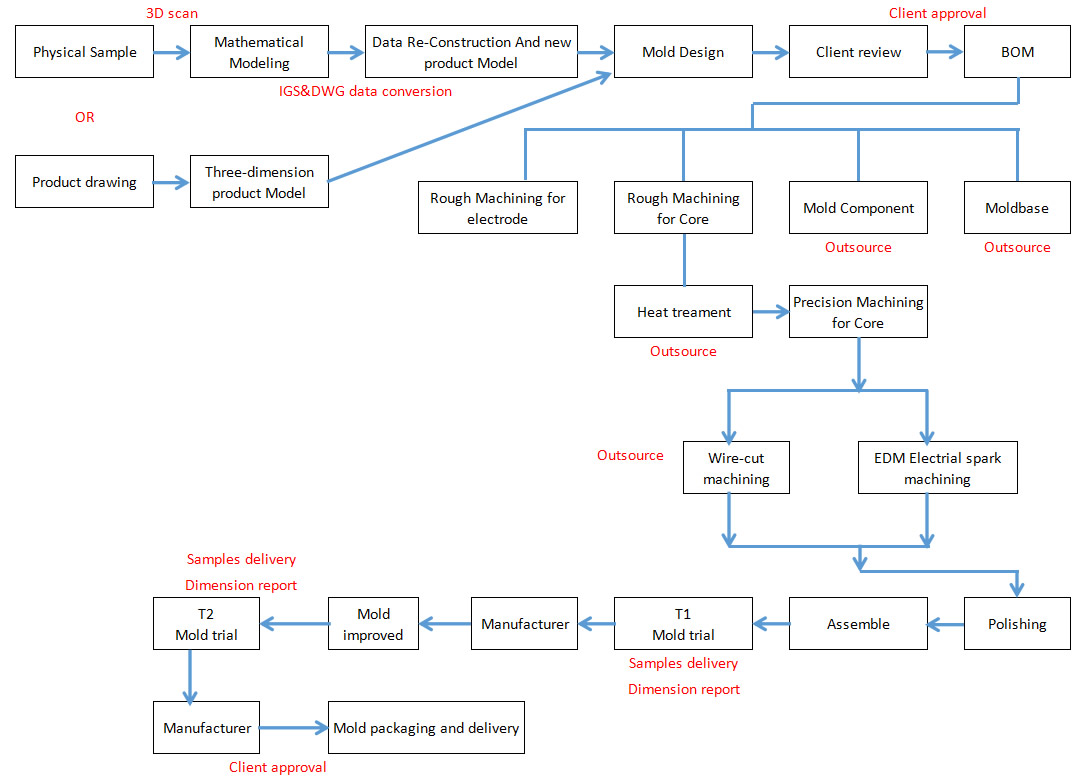
Hongyan Precision MouldMold Manufacturing
A variety of manufacturing processes involve the shaping of malleable raw materials using a designed, fixed tool, structure, or frame-known as the mold. In terms of structure, molds have concave shapes (negative mold) or convex shapes (positive mold) designed according to the final design the manufacturer intends to create.